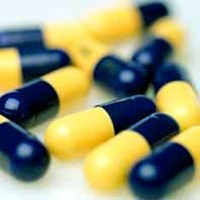A report from the Institute of Medicine, part of the National Academies in the U.S., calls for a new agreement on an international code of practice on drug quality to counter the growing health risks from illegimiate medicines. Among the recommendations in the report are a mandatory drug tracking system and tightening the licensing requirements on U.S. drug wholesalers.
Fake and substandard medicines not only fail to provide the protection or relief promised on the drug labels, says the report, they also can expose patients to dangerous medical conditions. An example is the recent case in the U.S. of a compounding pharmacy in Massachusetts that produced a medication that sickened more than 600 people and killing 44. In addition, fake versions of the cancer drug Avastin appeared in the United States in 2011 and 2012.
Most of the problems, however, occur overseas in developing countries where substandard and unsafe medicines compromise treatment of deadly diseases and accelerate drug resistance. In 2011, the security divisions at 25 major pharmaceutical companies reported that cases of falsified or substandard drugs were sold in at least 124 countries.
Georgetown University law professor Lawrence Gostin led the team that prepared the report. Gostin is also director of the World Health Organization’s (WHO’s) Collaborating Center on Public Health Law and Human Rights. “We’re calling on WHO, in collaboration with regulators, companies, and civil society worldwide,” says Gostin, “to adopt a global code of practice, build national regulatory capabilities, and promote international cooperation.”
That code of practice, says the report, should cover guidelines on surveillance, regulation, and law enforcement, similar to codes developed for the marketing of breast milk substitutes and the recruitment of health workers. The report notes that even the terminology used to define the problem needs standardization. It recommended adopting the terms “substandard” and “falsified” for products that pose a public health risk, rather than “counterfeit,” which has trademark infringement implications.
The report highlights the international nature of the problem, requiring an international solution. Drug manufacturers in the poorest countries purchase medicine components, including active pharmaceutical ingredients, from foreign chemical suppliers, and then formulate and package the drug for export. China exports more than three-quarters (77%) of the active ingredients it makes domestically, a $4.4 billion industry. India likewise exports 75 percent of the $2 billion in active ingredients made there.
The report offers recommendations beyond the manufacturing stage to tighten the complex supply chain of primary and secondary wholesalers and retailers that can make it possible for falsified and substandard products to enter the market. It recommends that the U.S. Congress authorize FDA to establish a mandatory track-and-trace system, including a unique identifer assigned to each product, enabling the product to be followed through every transaction — with funding for FDA to enforce the system. A national system of medication identifiers would make it easier for drug makers to implement than an inconsistent series of state-based systems, such as the one in California scheduled to go into effect in 2015.
The report likewise calls for tighter licensing standards for secondary wholesalers in the U.S., considered the weakest point of the country’s medication supply chain. It recommends that state licensing boards in the U.S. only license wholesalers and distributors that meet the accreditation standards of the National Association of Boards of Pharmacy. State boards should collaborate with FDA, says the report, to create a public database where states report violations and license suspensions and cancellations.
“What we’re seeing in the United States — and doubly so in developing countries — is a race to the bottom,” says Gostin. “Unscrupulous drug suppliers seek the state or country with the weakest regulatory and law enforcement standards. We need to encourage a status competition for the finest regulatory oversight.”
Read more:
- Safety Info Variations Found between Branded, Generic Drugs
- Universal Prescription Drug Label Standards Issued
- DNA Bar Codes Help Authenticate Natural Health Products
- Prescription Warning Label Effectiveness Found Limited
- New Standards Released for Drug Impurity Limits, Methods
* * *


 RSS - Posts
RSS - Posts
[…] Report: Common Action Needed Against Fake, Substandard Drugs […]